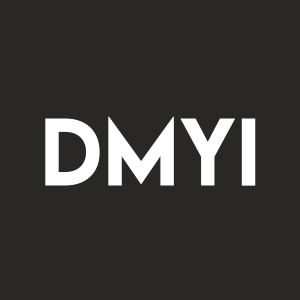IonQ Adds Integration with Google Cirq, Making IonQ’s Leading Systems Operable with all Major Quantum Software Frameworks
IonQ, Inc. (“IonQ”), the leader in trapped-ion quantum computing, today announced the full integration of its quantum computing platform with Cirq, a leading open-source quantum computing framework from Google. Volkswagen Group has already run the “paint shop problem” on IonQ via Cirq and found the performance to be consistent with other quantum software frameworks.
“From its origins, the vision for Cirq was to expand access to quantum computing to even broader audiences,” said Dave Bacon, VP of Software at IonQ (and one of the original authors of Cirq). “As a developer myself, I know that a smoother, simpler implementation is a better implementation, one that will be more useful in the real world. Volkswagen has shown that developing in Cirq on IonQ has real benefits for real problems faced by development teams.”
For Volkswagen, running the “paint shop problem” is a useful benchmark because it is a sequential ordering challenge reflective of many of the industry problems they hope quantum computing will help address. Cirq is fast and simple to deploy, and Volkswagen found that running on IonQ via Cirq produced the same results as doing so via other quantum frameworks.
“Applied quantum computing is still in its infancy, and the easier it becomes to access quantum computing hardware like IonQ’s via different tools, the broader and faster the adoption across many industries,” said Dr. Florian Neukart, Director, Volkswagen Data Lab. “This will speed up the development of industry-relevant applications, which is also what we focus on at Volkswagen.”
“It’s great to see the adoption of Cirq following the spirit of the Apache 2.0 open source license and making further hardware platforms accessible to the global Cirq developer community. It's even nicer to see this integration immediately being adopted by our collaborators from Volkswagen in such a great Cirq tutorial," explains Dr. Markus Hoffmann, Quantum Partnerships at Google Quantum AI.
Realizing the world-changing promise of quantum computing will require open, interoperable systems that enable users from academia, industry, and commerce to quickly access quantum hardware. By integrating with Cirq, and supporting all major quantum language and software frameworks, IonQ is further lowering barriers to entry by researchers, developers, and innovators. Cirq users, as well as users of all other major quantum SDKs, including Qiskit, PennyLane, Orquestra, Strangeworks QC and more can now submit programs to IonQ’s platform without writing any new code.
This integration with Google Cirq builds on IonQ’s continued success and proven performance. The company’s 11-qubit system is the first and only quantum computer available via the cloud on Amazon Braket and Microsoft Azure, and its 32-qubit system is one of the world’s most powerful quantum computers. IonQ has a critical role to play in pulling the quantum computing industry forward as its plans to develop modular quantum computers small enough to be networked together in 2023 could pave the way for broad quantum advantage by 2025, and its two co-founders, Jungsang Kim and Chris Monroe, were named to the White House’s National Quantum Initiative Advisory Committee (NQIAC). IonQ will further expand access to quantum as it prepares to become the first publicly traded quantum computing company via a merger with dMY Technology Group III (NYSE: DMYI).
About IonQ
IonQ, Inc. is the leader in quantum computing, with a proven track record of innovation and deployment. IonQ’s 32-qubit quantum computer is the world’s most powerful trapped-ion quantum computer, and IonQ has defined what it believes is the best path forward to scale. IonQ is the only company with its quantum systems available through the cloud on Amazon Braket and Microsoft Azure, as well as through direct API access. IonQ was founded in 2015 by Christopher Monroe and Jungsang Kim based on 25 years of pioneering research. To learn more, visit www.IonQ.com.
About dMY Technology Group, Inc. III
dMY III is a special purpose acquisition company formed by dMY III Technology Group, Harry L. You and Niccolo de Masi for the purpose of effecting a merger, capital stock exchange, asset acquisition, stock purchase, reorganization or similar business combination with one or more businesses or assets.
View source version on businesswire.com: https://www.businesswire.com/news/home/20210610005267/en/







